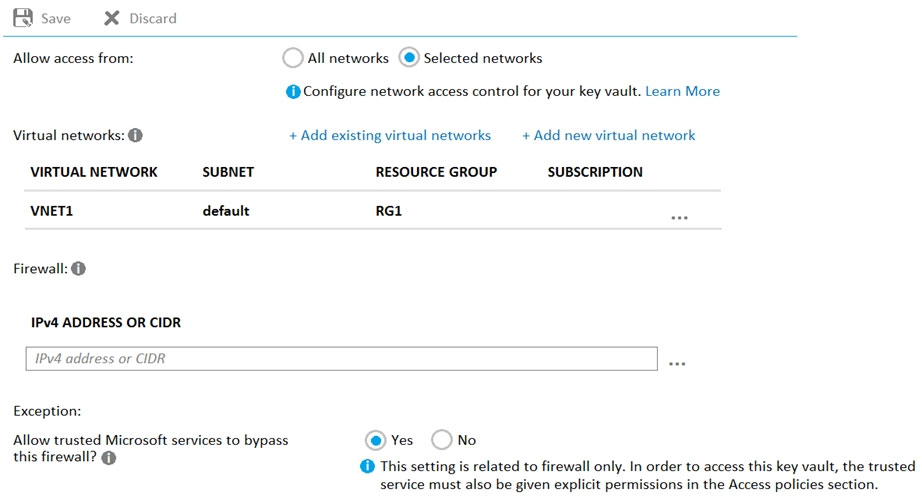

HOTSPOT -
You have an Azure subscription that contains an Azure key vault named KeyVault1 and the virtual machines shown in the following table.
You set the Key Vault access policy to Enable access to Azure Disk Encryption for volume encryption.
KeyVault1 is configured as shown in the following exhibit.
For each of the following statements, select Yes if the statement is true. Otherwise, select No.
NOTE: Each correct selection is worth one point.
Hot Area:

wooyourdaddy
Highly Voted 3 years, 7 months agowooyourdaddy
3 years, 7 months agogeuser
2 years, 9 months agoAzureJobsTillRetire
2 years, 6 months agoJakeCallham
Highly Voted 2 years, 10 months agoTheProfessor
1 year, 9 months agoKelly8023
2 years, 9 months agokoreshio
2 years, 9 months agoJhill777
2 years, 7 months agoHot_156
Most Recent 4 months, 3 weeks agoHot_156
4 months, 1 week agoHot_156
4 months, 1 week agoStrive_for_greatness_kc
1 year, 5 months agowardy1983
1 year, 7 months agoCaius
1 year, 8 months agopentium75
11 months, 2 weeks agonox2447
1 year, 8 months agopentium75
11 months, 2 weeks agoheatfan900
1 year, 10 months agoheatfan900
1 year, 10 months agoAzureAdventure
1 year, 9 months agoheatfan900
1 year, 11 months agogolitech
5 months, 1 week agozellck
2 years, 2 months agoITTesters
2 years, 2 months agotutonata
2 years, 4 months agobillo79152718
2 years, 2 months agomajstor86
2 years, 4 months agochikorita
2 years, 4 months agoltjones12
2 years, 6 months agomung
2 years, 7 months agoStubentiger
2 years, 7 months agolahl
2 years, 8 months agoMorozoro
2 years, 8 months ago